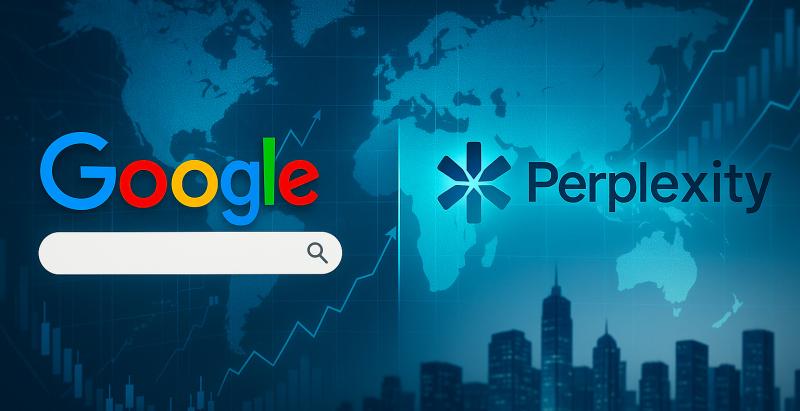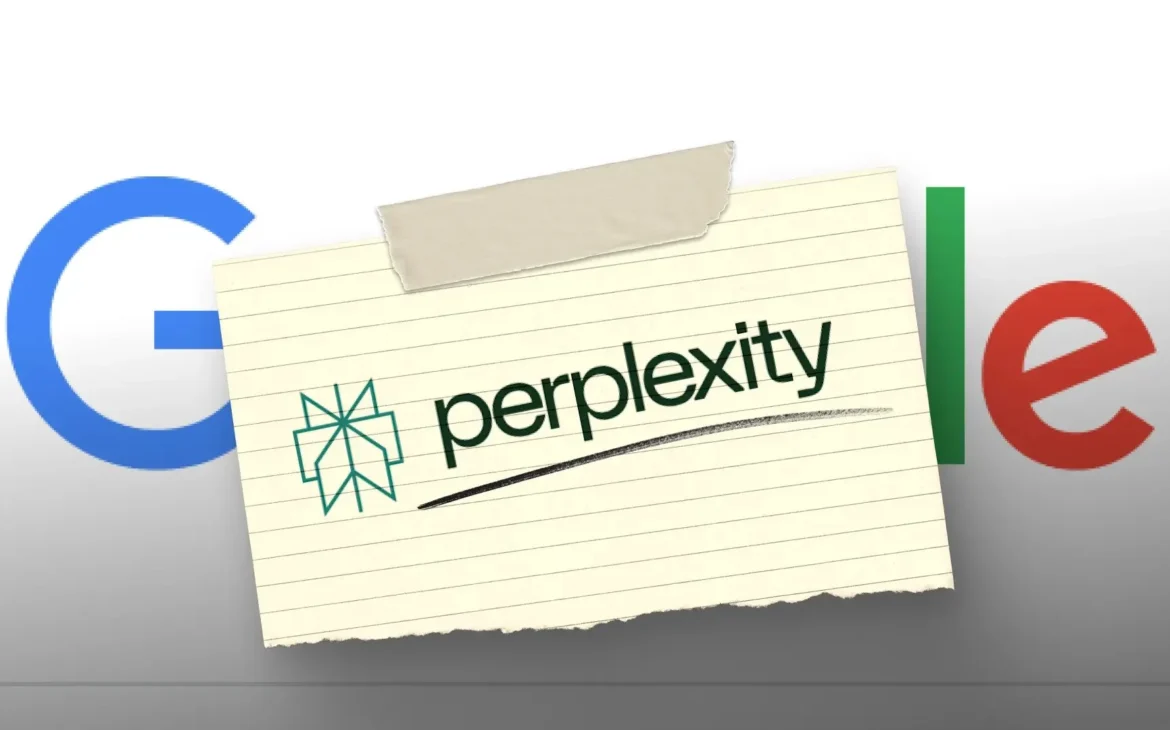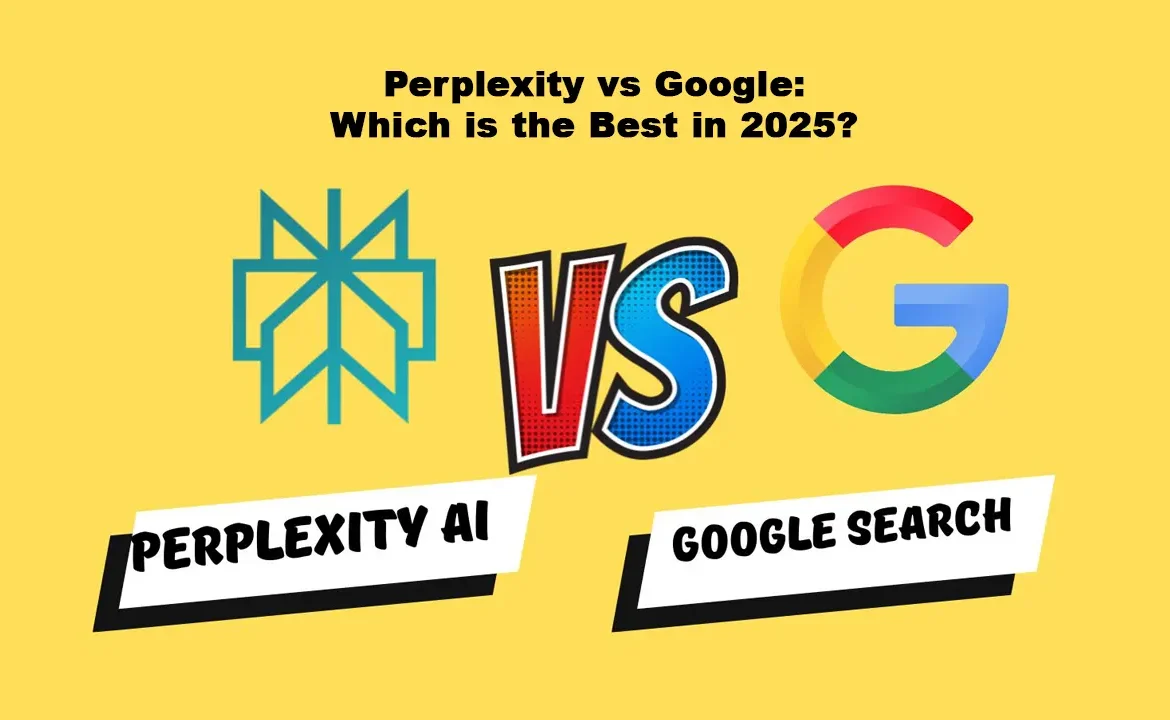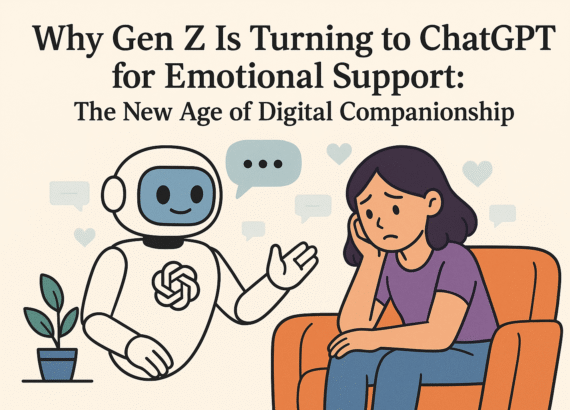Well, this is not just another year but a turning point for technology and tools. A quiet revolution is reshaping how we search for information online. On one side, we have the old guard: Google, a name so deeply woven into our habits that “Googling” has become a verb. On the other hand, an ambitious challenger: Perplexity, the AI-powered “answer engine” that’s growing fast and catching the world’s attention, especially in India.
Most importantly, India, where over 360 million Airtel users recently got access to Perplexity Pro, is proving to be a pivotal battleground.
But this isn’t just about two companies. It’s about how we find, trust, and use information in the age of AI. And it’s about a deeper question: Do we still want a billion links, or just one perfect answer?
Google: The Unbroken Champion Evolving
Well, Google has been the most popular and growing champion over the past two decades. Essentially, it is a search engine where you can search freely using keywords and phrases. You can explore stacks of information, including images, an AI-generated summary, videos, shopping cards, shopping links, and more. There’s rarely something you’ll not find on Google, and more trustworthy than AI overviews. However, there’s no other thought on AI overviews when discussing their sources. They’re mostly through the already present website info and data.
Specifically, Google is a smart engine that utilizes a specialized algorithm and data to understand queries and provide precise results. It gives AI summaries, visuals, and even follow-up suggestions. Besides, you’ll find a lot of ads too, as advertisements are its lifeblood. That’s why AI can’t take over everything. It has to support the business model, not replace it.
Perplexity: The Smart Disruptor and Competitor
In contrast to Google, Perplexity is a conversational AI search engine, where you can type your queries to find your answer. And it uses special and large language models to decode and understand human tones to provide to-the-point answers. It’s almost like ChatGPT, and the features are very similar. The best part is that it keeps on evolving with its capabilities to understand your prompts. Compared to Google, this AI-powered platform is designed from the ground up to answer your questions directly. No fluff, no SEO-stuffed links, no 10 tabs open to get a single insight. You ask your query, and it provides you with answers from reliable sources. It’s powered by the best models out there: GPT-4.5, Claude, Gemini, even Grok.
And it’s growing at lightning speed. In India alone, thanks to a partnership with Airtel, millions now have access to Perplexity Pro for free—a premium AI service that students, professionals, and developers are already loving. It’s the kind of quiet, grassroots adoption that shifts behavior without fanfare.
What We Really Want in 2025
Sometimes we want to explore, and sometimes we want the answer. Google is still brilliant when you’re exploring: planning a vacation, comparing prices, digging through niche Reddit threads. It’s a sea of possibility.
But when do you want clarity? When you’re on a deadline, studying for an exam, or trying to understand a new topic in 5 minutes? Perplexity wins. Every time. This is not “search.” This is learning. Fast, contextual, human-like learning.
The Browser Game
Here’s where things get spicy.
- Google has Chrome. It’s the most popular browser in the world. They’ve started layering Gemini AI into the browser itself. So yes, it’s becoming more intelligent.
- But Perplexity has launched something wild: a new AI browser called Comet.
- Comet: It’s not just a browser. It’s an assistant that sits with you while you work, reads the page you’re on, helps you summarize, compares two things, finds definitions in the background, and even manages your tabs. Imagine having a brilliant intern sitting beside you, quietly doing all the annoying stuff. That’s Comet.

Who’s Winning in India?
- In the global market, Google remains the undisputed leader. Over 90% of all search traffic goes through it. And with billions of users locked into the Google ecosystem: Gmail, Maps, Docs—it has serious staying power.
But in India, the story is changing.
- Perplexity’s deal with Airtel is a masterstroke. They are giving free access to Perplexity Pro worth ₹17,000. Indian students, researchers, and small business owners are now using AI at scale. And once that shift begins, it’s hard to reverse.
It’s not about one flashy feature. It’s about real people solving real problems faster—and that’s where Perplexity shines.
Where’s the Trust?
Google’s biggest problem isn’t AI. It’s trust. More and more users feel overwhelmed by ads, SEO tricks, clickbait, and sponsored results. Even when Google tries to give AI answers, it’s walking a tightrope, because those answers risk cutting into the clicks that pay the bills.
Perplexity, on the other hand, is very transparent. Every fact it gives has a source. Every summary can be expanded. And if it gets something wrong, you can challenge it, re-ask, or switch to a different model. There’s no manipulation but trust for sure!

The Tech Behind the Curtain
- Google runs on Gemini, its own large language models that are getting better and faster. Deep Search with Gemini 2.5 is fast becoming a powerful tool, especially for logged-in users with rich data.
- However, Perplexity utilizes the best models, depending on your plan. You can toggle between GPT-4.5, Claude, Gemini, and more. It’s like walking into a library and picking your favorite professor to explain something to you.
And with its Comet browser, you’re not just searching anymore. You’re building. Besides, you’re analyzing and using AI as a sidekick.
Legal & Ethical Questions
Neither company is perfect.
- Perplexity is being sued by media giants such as The New York Times and Forbes over alleged content misuse. As a startup, it’ll need to navigate this minefield very carefully.
- Google, meanwhile, faces criticism for monopolistic behavior and is under increasing pressure not to dominate AI the way it dominated Search. Its biggest challenge may not be technology—it’s regulation, innovation speed, and internal politics.
Conclusion
Perplexity has emerged from the shadows to challenge Google in 2025. While Google remains king of global Search and the backbone of the internet economy, Perplexity’s AI-centric approach—especially with Comet—has given users, particularly in India, a believable alternative.
We are more towards a blended future. To avail more such amazing updates, follow Nextr Technology!
Thank you for reading
Buy Web Hosting at an affordable price: Buy Now.
If you want to build your website at an affordable price, contact www.nextr.in
Read this: How AI is Changing Education


















